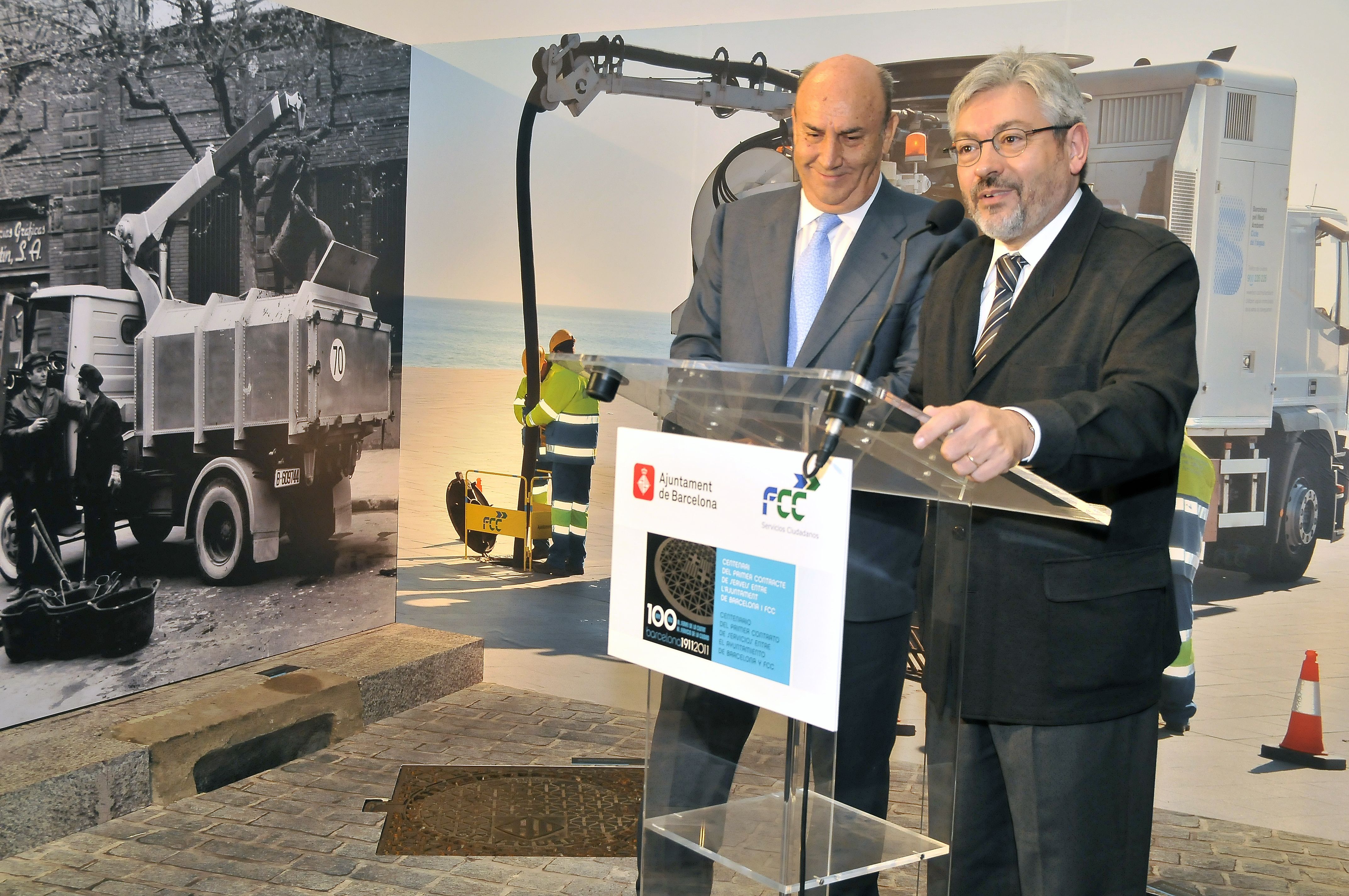15/11/2011

FCC and Barcelona city celebrate 100th anniversary of their first services contract
- An exhibition entitled "FCC and Barcelona's sewer network, 1911-2011" will be one of several events organised by the city government and FCC, the Citizen Services group
Barcelona city government awarded its first services contract, for sewer cleaning and maintenance in the Eixample district, in 1911. The winning bidder was Fomento de Obras y Construcciones (now FCC). FCC has been providing these services in Barcelona uninterruptedly since 1911. In honour of the hundredth anniversary of this contract, the Citizen Services group and Barcelona city have organised a series of events.

This commemorative exhibition offers a closer look at a century's worth of history based on three main conceptual areas. The first, which focuses on the contract and its development over the course of the century, highlights the relationship between FCC and the city through successive contracts and their main characteristics, which also tell the story of the city's development and modernisation.
The second and third feature historical objects related to the sewer network viewed as municipal infrastructure, and as the workplace of technicians and operators, with their equipment. This includes the original cart from 1916, which was known popularly as the "la patentada", and the first stone laid in 1887 to build the sewer on Diagonal, one of Barcelona's most important avenues.
Each object offers insight into specific aspects of the sewage network's history, and, consequently, of the "underground" history of the city over the last 100 years. Barcelona's sewer network currently spans 1,630 kilometres, i.e. the same distance between Barcelona and Berlin; 100 years ago the network was less than 90 kilometres long.
Public-private partnership (PPP)
The exhibition was inaugurated by Joan Puigdollers, Barcelona's Councillor for the Environment, and attendees included José Luis de la Torre, Chairman of FCC Services, and Daniel Venteo, historian and curator of the exposition. According to Puigdollers: "The public-private partnership between the government and FCC has given rise to a work methodology that has constantly created value for both parties and contributed decisively to the modernisation of Barcelona over the last century."
José Luis de la Torre: "The continuity of this contract over 100 years reflects FCC's long-term business approach and its ability to meet the needs of its customers at all times and in any situation. At FCC, we are proud to have contributed to the development of Barcelona. This contract is a great example of PPP, which we are trying to replicate with the 5,000 cities where we provide environmental and municipal services."
The anniversary celebrations will also include a reception on 23 November for the mayor, Xavier Trías, hosted by FCC's senior management, including the company's CEO, Baldomero Falcones. Other scheduled events include informational and technical sessions as well as professional meetings to discuss sewer systems and their importance in intelligent cities.
Citizen services and Barcelona
FCC, founded in Barcelona in 1900, has become one of Spain's leading multinational companies in the area of citizen services. While the company's initial focus was construction, it started diversify in 1911 when it was awarded the contract to clean and maintain Eixample district sewer.
Barcelona changed more during the 20th century than in any other period of its thousand-year history. Private enterprise has played a notable role in building the modern city.
FCC has been a constant partner throughout the city's development, providing services from sewer maintenance to upkeep of parks and gardens, from as early as 1915. The company also participated in the development of the venue for the 1929 Barcelona International Exposition and of Plaza Espanya, and improved urban mobility by building both the city's first underground car park on Passeig de Gràcia and the La Rovira tunnel.
FCC currently maintains fountains, parks and gardens as well as recreational areas and playgrounds, and collects and processes municipal solid waste, among other services.
Images
Joan Puigdollers, Barcelona's Councillor for the Environment, together with José Luis de la Torre, Chairman of FCC Environment, at the opening of the exhibition "FCC and Barcelona's sewer network, 1911-2011."

Joan Puigdollers, Barcelona's Councillor for the Environment, together with José Luis de la Torre, Chairman of FCC Environment, at the opening of the exhibition "FCC and Barcelona's sewer network, 1911-2011."








